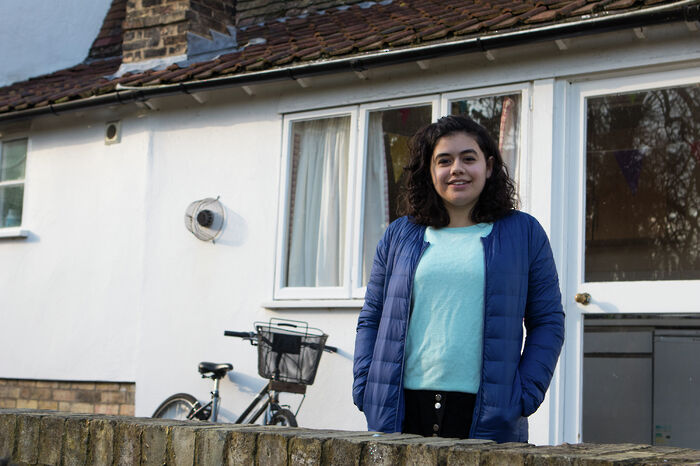It’s time to ‘Cut the Rent’
In the midst of uproar around gross rent inequality at Cambridge, Stella Swain and Matt Kite argue rent has spiralled out of control

According to the University, the average UK student at Cambridge will need £9,160 to cover living costs in 2018-19. Leaving aside any scepticism about how many students have access to that much money, let’s look at what it covers: transport, food in hall, the odd night out. Not living on the breadline, but nothing too extravagant either. It’s based on the average student spending 30 weeks a year in Cambridge, which comes out at £305 per week.
Say you’re a fresher at Churchill, and your room is about £1,000 a term. That leaves you with £205 a week after rent, which seems manageable. But with all first-year students at Murray Edwards paying £1,800 a term, as a fresher there you’re left with just £125 per week. At Girton you’re down to £105. Students arrive in Cambridge to find that their friends at other colleges can be £100 a week richer than they are: if nothing else, rent disparity across colleges is unfair.
However, the rents at this university actively force poorer students into dire financial situations. At Magdalene, a friend has been buying his housemate lunch for the last two weeks because she can’t afford three meals a day, and the sum of the financial support offered to a student at Murray Edwards was advice to bulk-buy rice. At Girton, students already paying £2,000 a term were asked to “chip in” to pay for kitchen repairs, leaving some unable to afford regular meals.
Cambridge’s rent problem is evidently also an access issue. If poorer students are not put off from applying entirely, they are often sold the lie that Cambridge is an affordable university. For some students this might be true, but the experiences of those at the sharp end of the dramatic rent disparity paint a very different picture. Cambridge has a systemic access issue which cannot be addressed solely through managing appearances: material changes are necessary to make this university genuinely open to all.
Rent negotiations are usually undertaken by JCR representatives who have the cards stacked against them: it is the Bursars who hold all the information, set the terms of the discussion and often do not take students seriously. When JCRs have real power, it comes not from colleges benevolently deigning to listen to their concerns but from the mandate of their students. A strong negotiating position is built on knowing that you speak for the real opinions of the student body and are backed by their potential for action.
Rents across Cambridge are at crisis point. The Cambridge Cut the Rent campaign has spread rapidly this term, with new colleges forming working groups and a growing solidarity between students who have found they are not alone in their experiences. Together we can look to the successes of campaigners nationally for proof that something can be done. UCL Rent Strike won £1.49 million from the University this year, and campaigners at Sussex University won major victories with merely the threat of a rent strike. Even the prospect of coordinated student action can be enough to disrupt a system built on isolating and disempowering students.
Student power can force fairer rents, and it is by creating a grassroots movement that we can show students what is possible, and colleges how much they depend on student compliance. Housing should be a social good, not an opportunity for financial profit. We have spent long enough being used as cash cows to prop up college finances while their vanity building projects continue. The time has come for student action
 News / Night Climbers call for Cambridge to cut ties with Israel in new stunt15 April 2024
News / Night Climbers call for Cambridge to cut ties with Israel in new stunt15 April 2024 News / Police to stop searching for stolen Fitzwilliam jade17 April 2024
News / Police to stop searching for stolen Fitzwilliam jade17 April 2024 News / Cambridge University cancer hospital opposed by environmental agency12 April 2024
News / Cambridge University cancer hospital opposed by environmental agency12 April 2024 Interviews / In conversation with Dorothy Byrne1 March 2024
Interviews / In conversation with Dorothy Byrne1 March 2024 Interviews / ‘It fills you with a sense of awe’: the year abroad experience17 April 2024
Interviews / ‘It fills you with a sense of awe’: the year abroad experience17 April 2024



